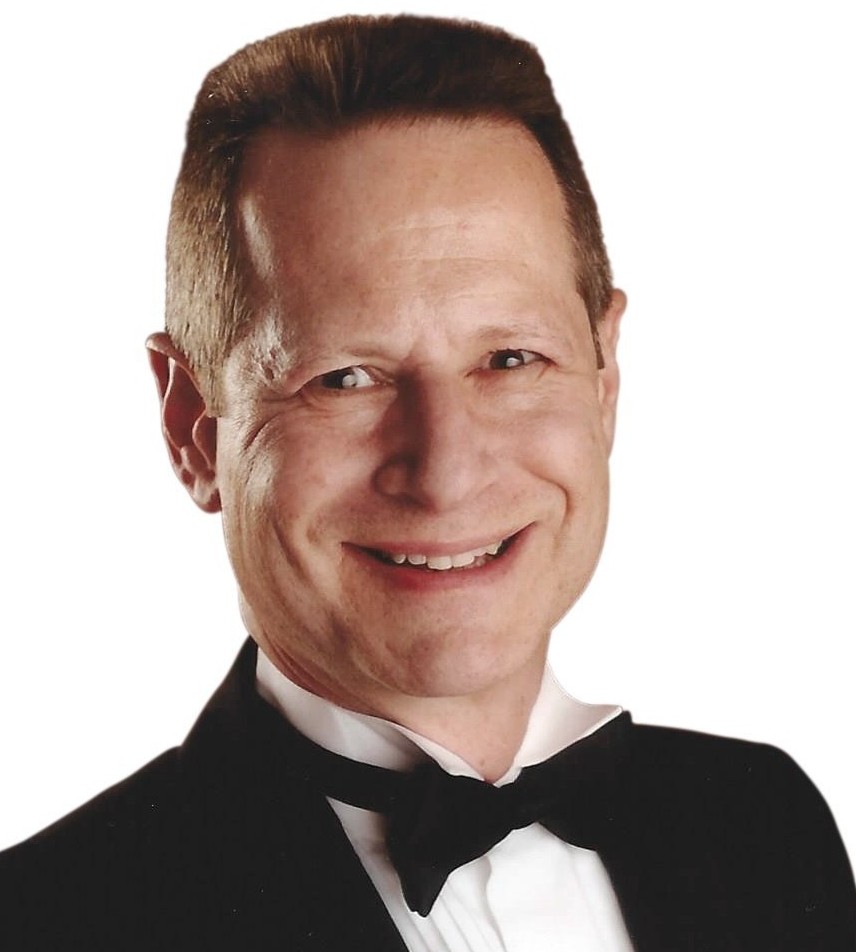
Successful leadership depends on how we manage paradoxes

These days, paradoxes abound—grit vs. grace, perform vs transform, speed vs. significance, critique vs. create, execute vs. engage, head vs. heart. And one that I’ve seen a lot of lately is self vs. system—which can be expressed simply as “I vs. we.”
The good news is we don’t have to choose between the opposites. We can find the connections and congruencies between them. That’s where things get interesting—and messy.
“It’s difficult to hold two opposing ideas in our minds because it creates cognitive dissonance, and we humans don’t like that. It’s super-uncomfortable,” Amelia Haynes, a research associate with our Korn Ferry Institute, told me this week. “But when we can find the congruencies between those ideas, the tension resolves, and our brains reward us with a shot of feel-good dopamine.”
In our conversation this week, Kevin Cashman, our Global Co-Leader of CEO & Enterprise Leader Development, peeled back the layers even further. As he explained it, we all have our patterns—too often leaning in one direction toward what’s most comfortable and familiar. But those go-to reactions and knee-jerk behaviors over time can become a rut—and even a derailer. It’s more than just an engrained habit—as Kevin put it: “even our neurophysiology gets stuck.”
That’s when it’s time to pause, as Kevin told me. “Stepping back, evaluating, and reflecting become our only chance of rewiring new neural pathways and reforming patterns. A pause can happen when we reflect on feedback we’ve received, observe someone we admire, or even when we rest and reflect. That’s why the more we pause for the complex and the important, the better we get at synthesizing the dots across polarities and paradoxes.”
It doesn’t just happen automatically. It starts with becoming more self-aware. Only then can we be intentional about where and how we expand our thinking—mastering the balancing act between what appear to be polar opposites, but actually complete us.
The good news is we can change our minds—literally. Here are some thoughts:
- Rewiring our reality. When we get good at something, our brains literally become hard-wired. In fact, if someone were to use brain imaging, they’d see the neural pathways that reflect the well-worn habits of how we think and act. Rather than get stuck in a rut, we need to expand our thinking. In fact, the more open our minds become, the more we can develop and tap the capabilities that allow us to make a positive impact. But it takes more than just will and skill. To get to the other side of paralyzing paradoxes we need to shift our mindsets so we can expand and reframe our reality. Then our possibilities become probabilities.
- Compare, contrast—always connect. When we compare and contrast between two opposites—spreadsheet vs. stories, profit vs. people—we’re using a skill set known as critical thinking. From elementary school onward, it became ingrained in us—or so our teachers hoped. While critical thinking is important, there’s another way of processing ideas that can open more possibilities: integrative thinking. It’s the opposing muscle that allows us to build integration and congruencies. In other words, it’s not enough to only see the dots, we also have to connect them. It’s a little like playing 3D chess—and, to be honest, it doesn’t come naturally to most people. As Kevin Cashman said, “Critical thinking is what we usually think of as intelligence. But it represents the discerning part of intelligence—not the synthesizing part. We need integrative thinking to go beyond seeing one thing or the other. It’s all about how they come together.” So, if our heads are buried in spreadsheets, perhaps it’s time to think more about stories. If we’re only focused on profit, now is the time to elevate people. It’s the yin and yang of leadership—seeing the dynamic balance between opposing forces.
- Our tale of two brains. We live largely in a left-brain world—overly focused on our technical skills and caught up in the details. Instead, we need to tap Google Earth and zoom out—and that takes our right brain. Looking at things from 30,000 feet helps us contextualize information. And the bigger the picture we see, the more we can connect and collaborate with others, instead of getting stuck in our own silos. Make no mistake—it’s not that our left brains don’t matter. We need both brains—left and right. By connecting them, we can see farther, wider, and deeper. That’s how we can look up, look out, and leap forward, becoming the best “us”—and bringing others with us.
With all due respect to what we learned in 11th grade, the dreaded compare-and-contrast no longer serves us in these times. The new world is not one or the other—or one versus another—neither for people nor ideas. There’s room for both—and more. Indeed, that’s the real brain game-changer.
Contributor: Gary Burnison, Korn Ferry CEO and Cliff Locks, Investment Capital Growth, Managing Director and Executive Coach
Are you looking for a gift for yourself, friends, family, or colleagues? I love giving Audible by Amazon as a gift. Audible online audiobook platform is where books are read to you while driving, relaxing at home, or on the go. Use any smartphone, tablet, and computer and turn it into an excellent learning resource. (Click on the Amazon logo below to get started and search for Audible.)

Cliff Locks is a trusted mentor, confidant, and advisor to CEOs, C-Level Exec, and high-potential employees to help them clarify goals, unlock their potential, and create actionable strategic plans.
Available to join your Board as a Certified Master Professional Board of Director and Advisor.
I am a trusted mentor, confidant, and advisor available by Zoom and by phone to be your right-hand man, who will make a significant contribution and impact on your way to success.
As a Trusted Mentor, Confidant, and Advisor, I support you, along with your company’s strategic and annual operating plan. This plan may include marketing, sales, product development, supply chain, hiring policies, compensation, benefits, performance management, and succession planning.
Most successful leaders enjoy talking to someone about their experiences, which is why most develop a close relationship with a Trusted Confidant—a person with whom they feel free to share their thoughts, concerns, and ideas without fear of sharing too much or being judged by the people they lead, or their colleagues and superiors. I am a sounding board who will help you to better develop and see your ideas through to fruition.
The most effective Executive find confidants who complement their strengths and sharpen their effectiveness. Bill Gates uses Steve Ballmer in this way; Warren Buffett turns to vice chairman Charlie Munger. In the end, both the Executive and their organizations benefit from these relationships.
As your trusted confidant, I am always by your side, holding your deepest secrets and never judging. Everything discussed is held in complete confidence.
What many executives feel is missing from their busy life is a trusted business person who understands the holistic complexity of both their business and personal life.
I strive to provide solid financial, business, and family expertise and serve as a dispassionate sounding board, a role I like to call “Executive Confidant.”
By holding a safe place for the Executive to work on life path issues as well as direction, I repeatedly see remarkable benefits as personal values become integrated with wealth and family decisions, enhancing a more meaningful life.
As an Executive Confidant, I welcome a confidential conversation about the most important issues facing the business leader, including:
• Strategic planning toward your visions of success and goal setting • Operations, planning, and execution • Career transition • Retirement • Legacy • Kids and money • Marriage and divorce • Health concerns • Values and life purpose • Vacations • Mentoring & depth of the executive bench • Succession planning
When I do my job well, I facilitate positive action in both your professional and personal life. This consistently has a positive benefit on impacting people within the sphere of your influence.
The job of an Executive can be lonely. For various reasons, confiding in colleagues, company associates, family members, or friends presents complications. Powerful, successful, and wealthy individuals often isolate themselves as a protective reaction because of their inability to find people they can trust and confide in.
Successful people are often surrounded by many people, yet they insulate and isolate themselves to varying levels of degree. This isolation factor is not often discussed in the same context because the assumption is that success and wealth only solve problems. The false belief is that it does not create more problems, when, in fact, sometimes it creates a unique set of new challenges. Success and wealth do not insulate you from the same pitfalls that the everyday person faces. It may give you access to better solutions perhaps, and that is what I can help you achieve. Financial business success can create unique vulnerabilities, often overlooked as most people feel that the “problems” of the wealthy are not real-life problems.
The Executive Confidant can be particularly helpful when:
• Aligning life priorities with the responsibilities of wealth. • Wanting more meaning and purpose in life. • Desiring a candid and experienced perspective. • The answers often come from within, and we cannot arrive at them easily. • Clarity often comes into focus, with skilled questions and guided discovery. The right questions can be the first step in achieving ideal outcomes.
Who can you turn to when you need to find clarity? Who is your “Executive Confidant”?
Referrals to a team members or family members are always welcome.
Investment:
One-to-One – Individual payment: Strategic Coaching: $295 per month (weekly for 30 minutes to 1 hour depending on the depth of our conversation Zoom meeting).
One-to-One – Corporate payment:
i. Coaching & Leadership Development: $600 per month engagement (weekly 1 hour Zoom meeting).
ii. One-to-One Executive Coaching and Mentoring: $600 per month engagement (weekly 1 hour Zoom meeting).
iii. Increasing Top Team Performance and 1:1 Mentoring Sessions: $600 per month engagement (weekly 1 hour Zoom meeting).
iv. Planning New Futures for Senior Executives: $600 per month engagement (weekly 1 hour Zoom meeting).
Team coaching:
i. Enhancing Boardroom Effectiveness & Executive Impact Group: Starting at $15,250 per annual engagement.
ii. Strategic & Operational Planning/KPI Development: Starting at $25,500 per annual engagement.
iii. Productivity Assessment & Profitability Improvement: Starting at $25,250 per annual engagement.
iv. Sales Channel and Product Development: Starting at $25,250 per annual engagement.
v. Energy and Sustainability Efficiency Initiatives: Starting at $18,500 per annual engagement.
Board of Directors or Board of Advisors:
- Private company:
- $25,000 to $45,000 per year, depending on the number of Board and Committee meetings.
- Public company:
-
- Under $50M in revenue: $25,000 to $45,000 per year, per year, depending on number of Board and Committee meetings.
- Micro: $50M – $500M in revenue (click for annual compensation)
- Small: $500M – $1B in revenue (click for annual compensation)
- Medium: $1B – $2.5B in revenue (click for annual compensation)
- Large: $2.5B – $10B in revenue (click for annual compensation)
- Top 200: Largest 200 in the S&P 500 (click for annual compensation)
-
Email me: [email protected] or Schedule a call: Cliff Locks OptimizeLife #CEO #CFO #COO #BoD #CXO #Professionalpedia #TeamBuilder #success #beyourself #goals #lifeisgood #Influencer #Successful #Business #WorkLife #OfficeLife #Work #Office #Inspiration #Marketing #Tips #Leadership #BusinessIntelligence #InvestmentCapitalGrowth

